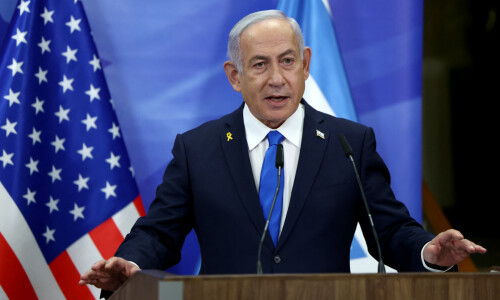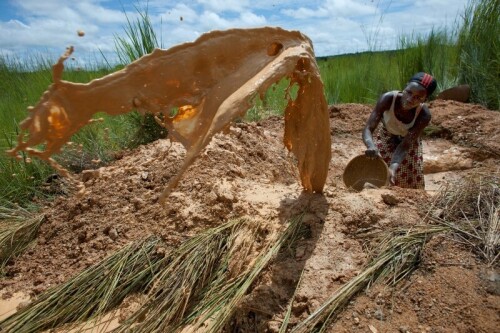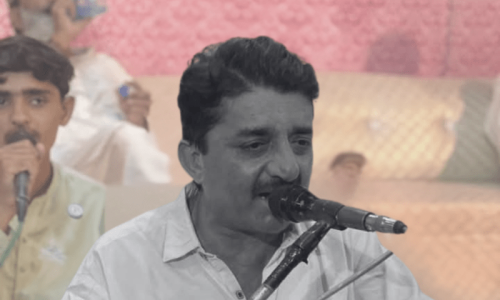JEDDAH: As the NBA season kicks off in America this week, a group of Saudi women and girls will be pursuing their own hoop dreams.
Women's basketball is gaining in popularity in a kingdom rife with public restrictions on female movement and activity. With the help of some US-trained coaches, female enthusiasts are using basketball to push for greater rights for women on and off the courts in Saudi Arabia.
“We are an activist team,” said Lina Almaeena, who started the first women's basketball team here 11 years ago. That led to the creation of Jiddah United in 2006, the first sports club in Saudi Arabia to include women.
“We took it upon ourselves to really promote the sport at a time when it was a big time taboo ... when there was a self-imposed censorship on women's sports.”
For the players, basketball is not merely a sport but an act of defiance in a country where female access to exercise is outright shunned by ultraconservatives; physical education is still not on the curriculum for girls in Saudi public schools.
Women are bound by strict rules when it comes to their attire, so they cannot be seen by men while jogging in sweat pants, much less wearing fitted or revealing shorts. Most women in Saudi Arabia cover their hair and face with a veil known as the niqab and all women are required to wear a loose black dress known as the abaya in public.
Nevertheless, Saudi women's basketball is on the rise, and women from the ultraconservative kingdom are even playing in other Arab countries. Hadeer Sadagah, 20, started playing eight years ago with Almaeena at Jiddah United. She now plays at the collegiate level for the University of Sharjah in the United Arab Emirates.
“I wouldn't be the person I am today without the sport and the team,” she said. “It made me be more active in society, school and in studies. It made me more social. It made me confident.”
At a recent afternoon basketball practice in Jiddah, girls as young as four years jumped, took shots and ran on open-air basketball courts behind gated concrete walls. Boys played in nearby courts. The children and their coaches stopped for daily prayers.
Almaeena says basketball is becoming popular among Saudi girls because it offers the camaraderie of a team sport. Basketball is also seen as more societally acceptable since girls can practice in loose, conservative clothes, and the sport can be played indoors and outdoors.
From its humble beginning at Jiddah United, the sport has grown into a network of teams in different cities. No formal league exists but women's teams play in privately organized tournaments against a handful of other private schools, universities and club teams across the kingdom.
Despite the growth, women's basketball in Saudi Arabia still faces a host of logistical obstacles due to the kingdom's strict gender-segregation rules.
Women's teams are not part of the kingdom's federation that oversees sports, and women often struggle to find facilities to train and are not allowed to attend matches in stadiums.
In Jeddah, the older female players practice and play in a female-only gym. They only play tournaments in front of other women, and even their male coaches do not attend games.
It wasn't until 2012 that Saudi Arabia sent its first female athletes to the Olympics — exactly two of them. And two years later for the 2014 Asian Games, the kingdom reverted to its tradition of sending an all-male delegation.
There's also a strong conservative sentiment against women playing sports. Well-known clerics have spoken out against sports like basketball, saying the exertion could tear a woman's hymen and cause her to lose her virginity. Others argue that sports blur gender lines and make women more masculine.
Almaeena's team generated some negative publicity in 2009 after they played a tournament in Jordan. The players were not wearing their abayas and photographs of them in modest track suits landed in local newspapers. They were labelled “immoral” and “satanic”, Almaeena said.
It makes sense that Jeddah would become the incubator for women's basketball in Saudi Arabia. The coastal city is easily the country's most liberal and cosmopolitan.
Jeddah's residents are a melting pot of ethnicities whose ancestors settled along an ancient trade and pilgrimage route, unlike the largely tribal roots of other Saudis. The result has been a distinct and more open culture than Saudi cities like the capital, Riyadh.
"Jeddah is where women are most physically active in society,” said Sadagah, the Jeddah-born collegiate player in Sharjah. “I think it's the society. We are different. We are not the same (as Riyadh)."
Jeddah created public spaces where women and young girls briskly stroll alongside men in sporty black robes — a novelty in a kingdom where women exercising is largely a private activity. Even with the comparative liberalism, women's sports in Jeddah still face restrictions that render it an upper-class and elite pastime.
Joining a club like Jeddah United costs around 600 riyals ($130) a month. Getting to a gym or sports club also requires paying for a chauffeur because women are not allowed to drive in Saudi Arabia.
For now, women's basketball in Saudi Arabia remains a fringe phenomenon, but for enthusiastic players and parents, its presence is a much-welcome source of both exercise and confidence-building life lessons.
“The concept of sports brings what we're trying to teach. Leadership skills, role playing and how to manage your time,” said New York-born American coach Umar Abdul Salam, who has been training girls and boys in Jiddah for more than a decade. “You want to get good at something? Work for it. “
Alaa AlShuwayer, a pharmacist and mother to two young girls, recently checked out a basketball practice with Abdul Salam in Jeddah and was considering enrolling her daughters.“I know 100 per cent there's nothing wrong with girls or boys playing sports,” she said. “I'd rather they play sports than buy them dresses and earrings.”
















































